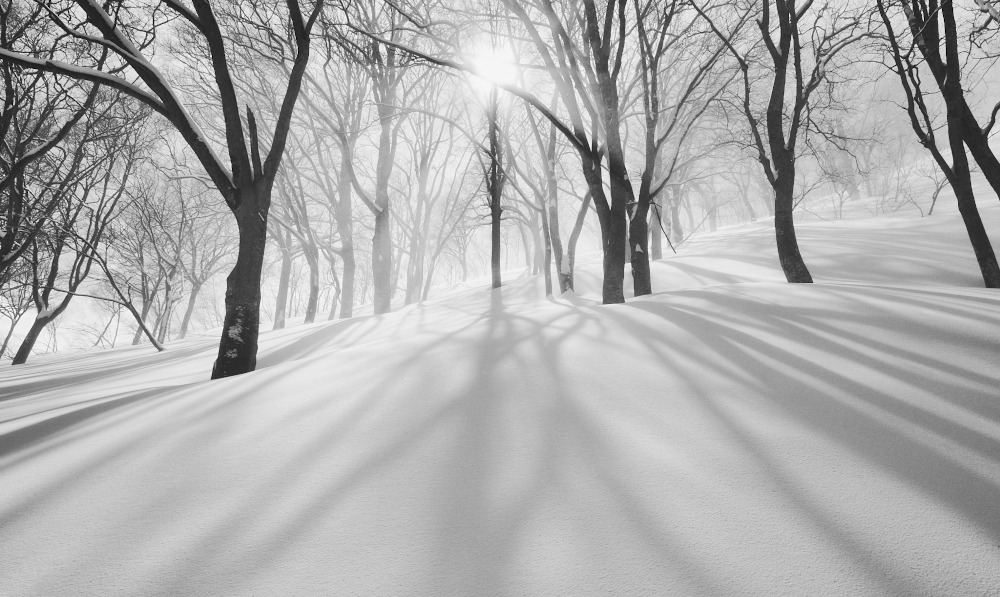
Capturing the wild beauty of our world
Capturing the wild beauty of our world
Photographer Konrad Bartelski
A skier and a photographer, Konrad Bartelski combines his two passions to capture majestic snowy landscapes across the world. Travelling to the likes of Japan, Russia and the Arctic, his work, displayed in large format, takes you right there.
“It is about capturing the perspective of a place,” he says. “I want my work to be three-dimensional and for people to be noticing new things in the photograph, even though you may have had the picture for a couple of years,” says Konrad.
His work was recently on display at Wimbledon Fine Art, his second exhibition there, and the response he had was phenomenal.
“I’ve been blown away by it, really,” Konrad says. “But I guess my work is very different to that of the typical adrenaline-fuelled ski shots. I capture the tranquillity, the wide open spaces, the minimalistic winter scapes.”
“If you have a blank wall in your house, then a photograph can take you out into nature, and that is very good for you. Your brain needs nature, something to feed off.”
Ask him which his favourite photograph is, and he says that is like asking him who his favourite child is. But the one on the front of the exhibition brochure (pictured top) is his signature style. “It was taken while hiking through the forest in Japan. This dream world opened up – a special kaleidoscopic moment of magic…”
Konrad’s passion for capturing these worlds on camera was piqued as a young skier, when he would take to the slopes with his old SLR camera. He first skied aged three and by 16 he was competing professionally in the FIS Ski World Cup. The following year he raced in in the 1972 Olympic Winter Games, in Sapporo, Japan. Then in 1981 in Val Gardena, he was the first British male to stand on a World Cup Downhill podium with his second place in the downhill.
Konrad has undertaken many expeditions to the remote and extreme corners of the world; to the Norwegian Arctic, Antarctica, climbed volcanoes in Iceland, as well as the uncharted slopes of Kyrgyzstan, the back -country in the Alps, Kashmir and the majesty of Patagonia.
As a professional skier, he has been no stranger to life on the edge but he says he wouldn’t count his ski tours as particularly dangerous. “Some might – I’ve been caught in what some might call avalanches, others class as snow flurries. I’m not one for embellishing the danger. And I always have the privilege of having these amazing mountain guides.”
“It is these sensitive and imaginative characters who have enabled me to explore the areas of this earth where the perspective and scale of the winter geography is captured at its purest.”
He counts Argentina and Japan as being among the favourites he has visited, as well as Antarctica. “It is true what Shackleton said in that once you have been to Antarctica, you want to go back.”
With the lockdown putting an end to everyone’s travel plans, Konrad took to photographing places closer to home, still finding the magic, whether that was on daily walks in Barnes and Richmond or photographing Earls Court station with no one around. He also points to one photograph he took in West Wittering as being particularly special, as it was the first after lockdown.
“It doesn’t matter what camera you have. The one you have on you is the most suitable,” he laughs.
Konrad, who lives in Fulham, has called south west London home for over thirty years. He’s photographed and documented the local area, even producing a video for Wimbledon Tennis Club on the lesser known facts behind the area and the tournament.
Given his incredible career as both a professional skier and photographer, what is he most proud of professionally? It turns out neither of these things: “I helped set up a charity in 1986 called Back Up after a friend broke their back. It has gone from strength to strength helping those with spinal injuries and a portion of the profits from the exhibition will go to that.”
What’s next? “I will have to be patient and see where we are allowed to go after the pandemic. Good things come to those who wait!”
More on Konrad Bartelski…






